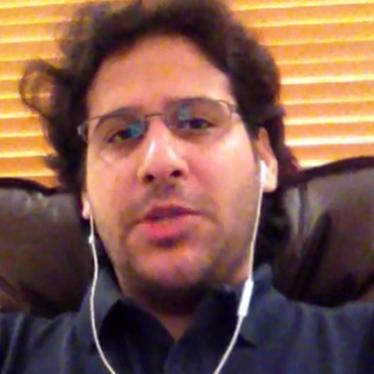Calling Iran’s execution on August 26, 2008 of juvenile offender Behnam Zare abhorrent, Human Rights Watch urged the Iranian judiciary to immediately commute the sentences of more than 130 other prisoners facing death for crimes committed while children.
Zare is the sixth juvenile offender Iran has executed this year. No other country is known to have executed a juvenile offender in 2008. Since January 2005, Iran has executed at least 26 juvenile offenders. During the same period, only four other countries – Saudi Arabia, Sudan, Yemen, and Pakistan – are known to have executed any juvenile offenders, with a combined total of six such executions in the four countries.
“Iran leads the world in executing juvenile offenders” said Clarisa Bencomo, researcher on children’s rights in the Middle East at Human Rights Watch. “Everywhere else, countries are moving to end this abhorrent practice, but in Iran the numbers of death sentences seem to be increasing.”
As a party to the International Covenant on Civil and Political Rights and the Convention on the Rights of the Child, Iran is obligated to prohibit executions of persons under 18 at the time of the crime.
Branch 5 of the Fars Criminal Court had sentenced Zare to death on November 13, 2005, for a murder committed on April 21, 2005, when he was 16. Branch 33 of the Supreme Court upheld the ruling on May 14, 2007. Authorities at Shiraz Prison executed Zare on August 26, 2008.
Zare’s family and his lawyer, Mohammad Mostafaei, only learned of Zare’s execution after the fact, although Iranian law requires that the lawyer be notified 48 hours before the execution. Zare’s family and lawyer had been trying to reach a settlement with the victim’s family at the time of the execution.
Zare’s execution closely follows the execution of juvenile offender Seyyed Reza Hejazi at Isfahan Central Prison on August 19, 2008. Branch 106 of the Isfahan General Court had convicted Hejazi of murder on November 14, 2005, for his role in a 2003 fight involving several people. Hejazi was 15 at the time of the crime, and repeatedly told authorities that he had not intended to kill the victim.
As in the case of Zare, the authorities did not notify Hejazi’s lawyer, also Mohammad Mostafaei, 48 hours prior to the execution. Instead, Mostafaei learned of the pending execution from a journalist the night before. Prison authorities refused to allow Mostafaei to visit Hejazi the morning of the execution, and he eventually left after a prison official told him the execution had been stayed. Instead, prison officials executed Hejazi an hour later.
“Killing people for crimes committed as children provides neither justice nor safety for Iranian society,” Bencomo said. “The Iranian authorities’ willingness to lie to lawyers and to deprive families of a last chance to see their loved ones only underscores the depravity of these executions.”







